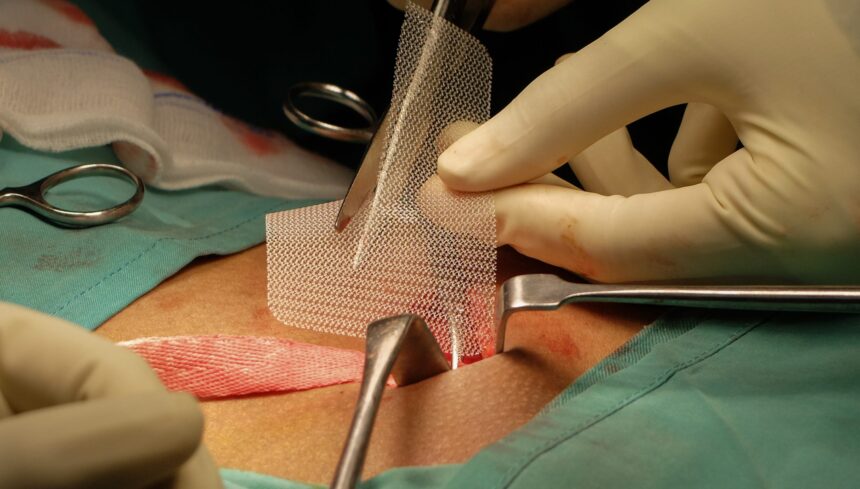Philanthropic funding has become a driving force behind groundbreaking developments in hernia surgery techniques, transforming patient outcomes across the globe. As gastro-esophageal and endoscopic surgeons face increasing demands for minimally invasive procedures and enhanced patient care, private foundations and charitable organizations provide the financial backbone for research that might otherwise remain underfunded. This support system enables surgical teams to explore innovative approaches, develop new technologies, and share knowledge across international boundaries. The intersection of charitable giving and medical advancement creates opportunities for surgeons to access cutting-edge techniques that benefit patients worldwide.
How Does Philanthropy Support Innovation?
Philanthropic organizations channel millions of dollars annually into hernia surgery research. Doing so funds projects that government grants and institutional budgets cannot accommodate. Several private foundations provide direct financial support for clinical trials, equipment development, and refinement of surgical techniques. These investments allow research teams to explore experimental approaches without the constraints of traditional funding timelines.
The development of robotic-assisted hernia repair techniques exemplifies philanthropic impact on surgical innovation. Charitable funding enabled early adopters to purchase expensive robotic systems and train surgical teams before these technologies became widely available. This financial backing accelerated the learning curve for complex procedures and established best practices that now guide surgical protocols globally. Research institutions use philanthropic grants to create dedicated hernia surgery centers where surgeons can focus exclusively on advancing repair techniques.
Technological advancements receive substantial philanthropic support through equipment donations and research grants. Private donors fund the development of specialized mesh materials, improved laparoscopic instruments, and advanced imaging systems that enhance surgical precision. These contributions allow surgical teams to test new equipment configurations and refine procedural approaches without depleting hospital operating budgets.
How Do Partnerships Drive Advancements?
Collaborative partnerships between philanthropic organizations, medical institutions, and surgical teams create powerful networks for advancing hernia surgery techniques. These alliances combine financial resources, clinical expertise, and research capabilities to tackle complex surgical challenges that individual organizations cannot address alone.
Strategic partnerships produce measurable results through coordinated efforts:
- Multi-institutional research networks: Philanthropic funding enables hospitals across different countries to collaborate on large-scale studies, sharing patient data and surgical outcomes to identify optimal repair techniques for specific hernia types.
- Technology transfer programs: Charitable organizations facilitate the sharing of advanced surgical equipment and techniques between developed and developing regions, allowing surgeons in resource-limited settings to access state-of-the-art repair methods.
- Cross-border training initiatives: Partnership funding supports exchange programs where experienced surgeons travel internationally to teach advanced techniques while learning from local surgical approaches and patient populations.
- Industry collaboration platforms: Philanthropic support creates neutral spaces where medical device manufacturers, surgical teams, and researchers can work together to develop patient-centered solutions without commercial conflicts.
These partnerships amplify the impact of individual contributions by creating synergies between different expertise areas. Surgeons gain access to broader patient populations for clinical studies, while philanthropic organizations can track their investment impact across multiple institutions and geographic regions.
Why Is Education Key to Progress?
Educational initiatives funded by philanthropic sources serve as the primary vehicle for disseminating advanced hernia surgery techniques to surgical teams worldwide. Training programs supported by charitable funding reach surgeons in regions where access to specialized education might otherwise be limited. These programs focus on practical skill development, enabling participants to implement new techniques immediately upon returning to their home institutions.
Global knowledge-sharing platforms receive substantial philanthropic support to maintain comprehensive databases of surgical techniques, patient outcomes, and best practices. Online educational resources funded by charitable organizations provide surgeons with access to video demonstrations, case studies, and peer-reviewed research findings. This digital infrastructure enables continuous learning and technique refinement without geographic or economic barriers.
Philanthropic funding supports hands-on workshop programs where surgeons practice advanced techniques using simulation equipment and cadaveric models. These intensive training sessions allow participants to master complex procedures before attempting them on patients. The funding covers facility costs, equipment expenses, and expert instructor fees that would otherwise make such programs prohibitively expensive for many surgical institutions.
Discuss Hernia Surgery Advancements
Philanthropic investment has revolutionized hernia surgery, driving advancements in minimally invasive techniques, biocompatible materials, and patient-specific tools that improve outcomes and reduce recovery times. Charitable funding has made cutting-edge procedures accessible in regions that previously lacked such options, with training programs and equipment donations empowering surgical teams in developing countries. This global democratization of surgical excellence highlights the transformative impact of philanthropy in healthcare. Surgeons can contribute by partnering with organizations, supporting research campaigns, or participating in international programs to share expertise and elevate patient care worldwide.





